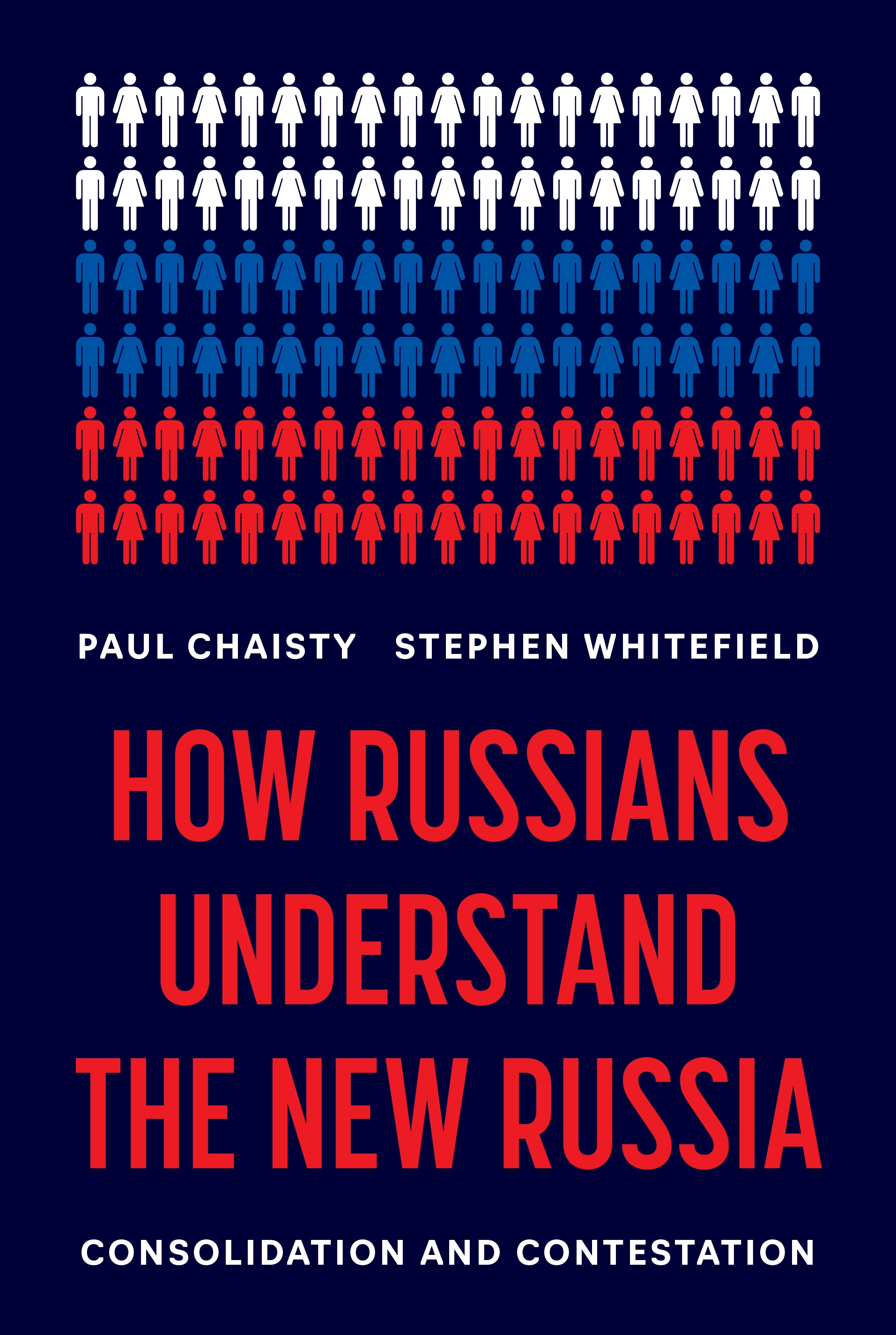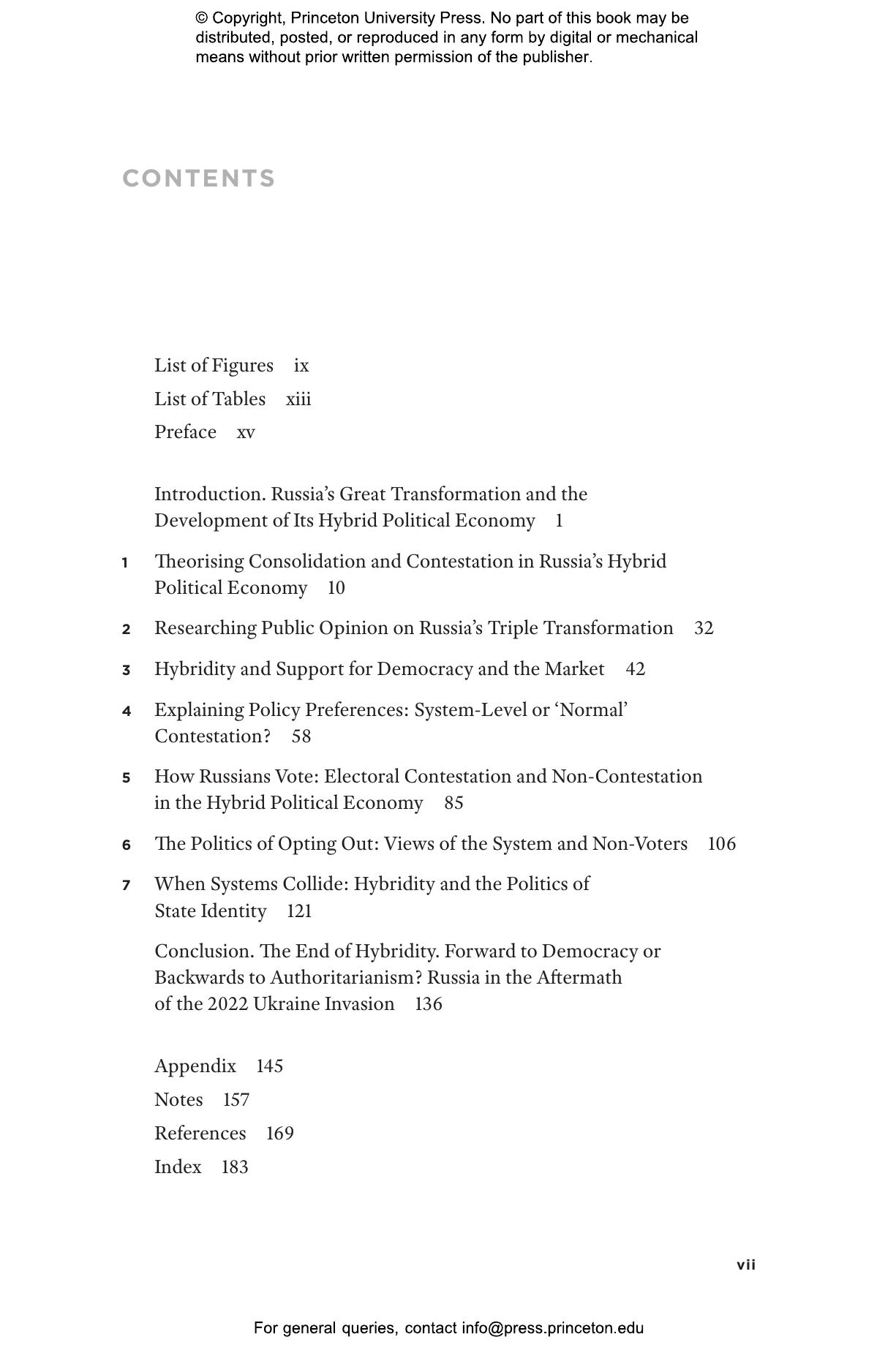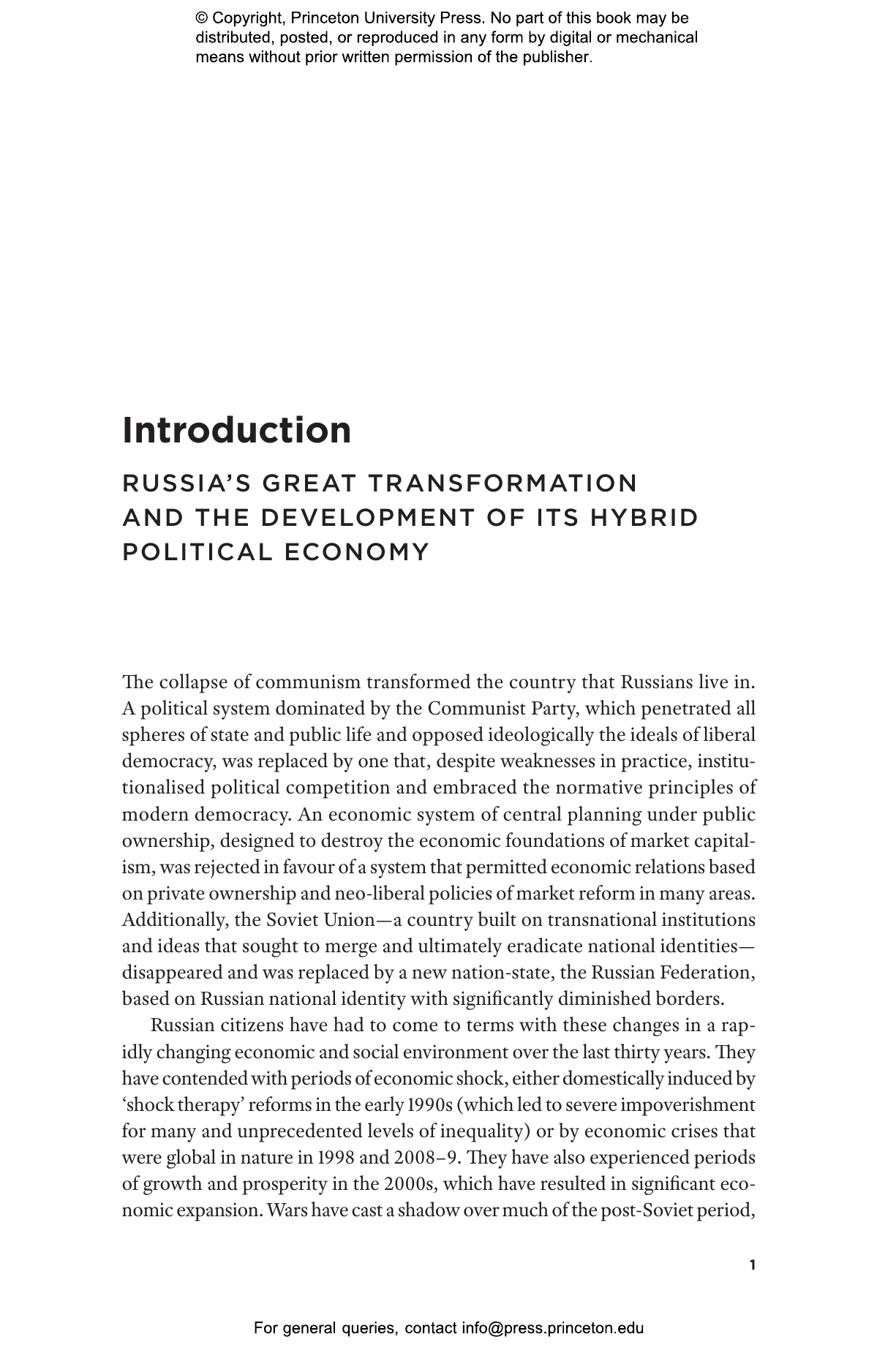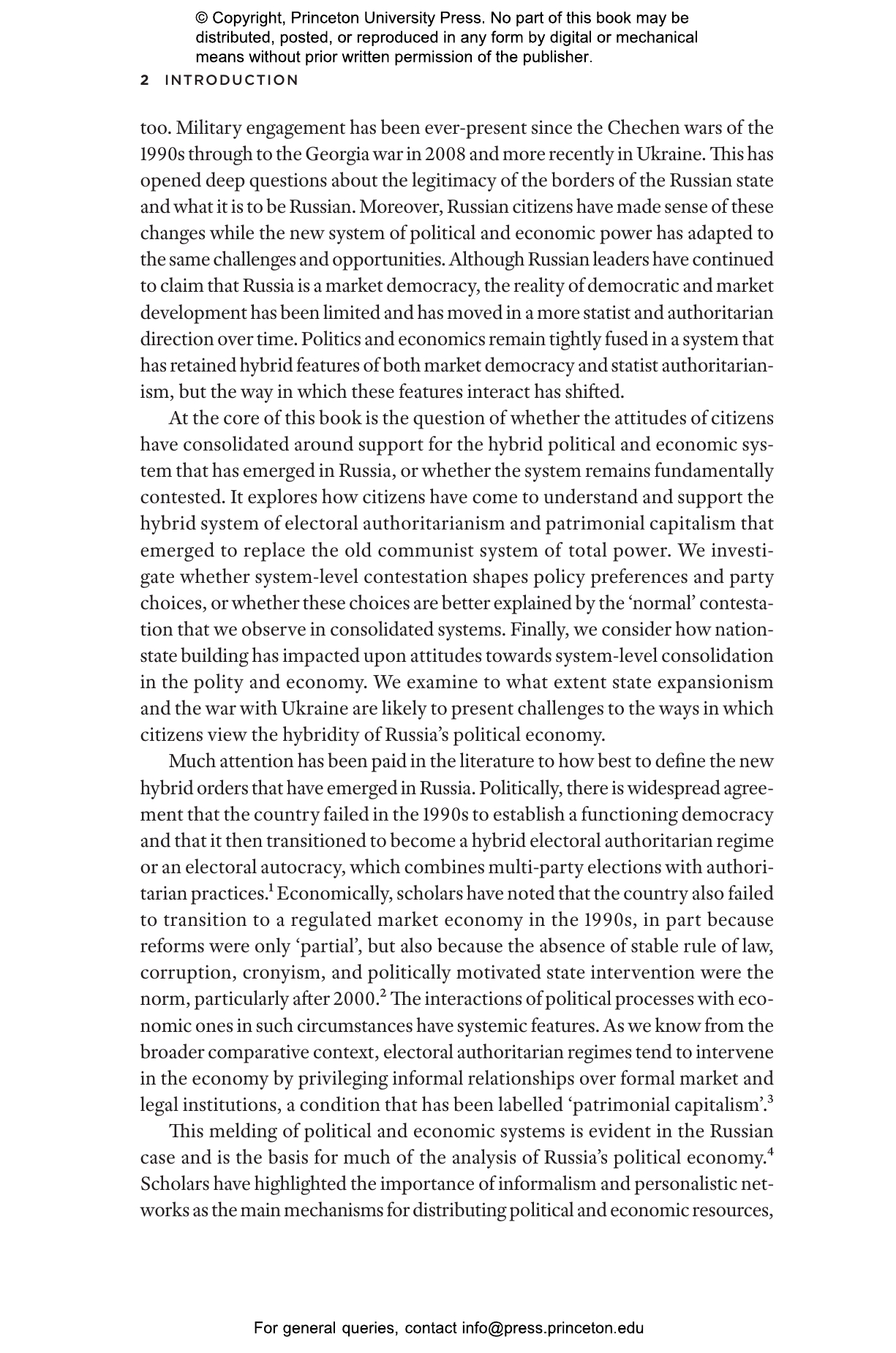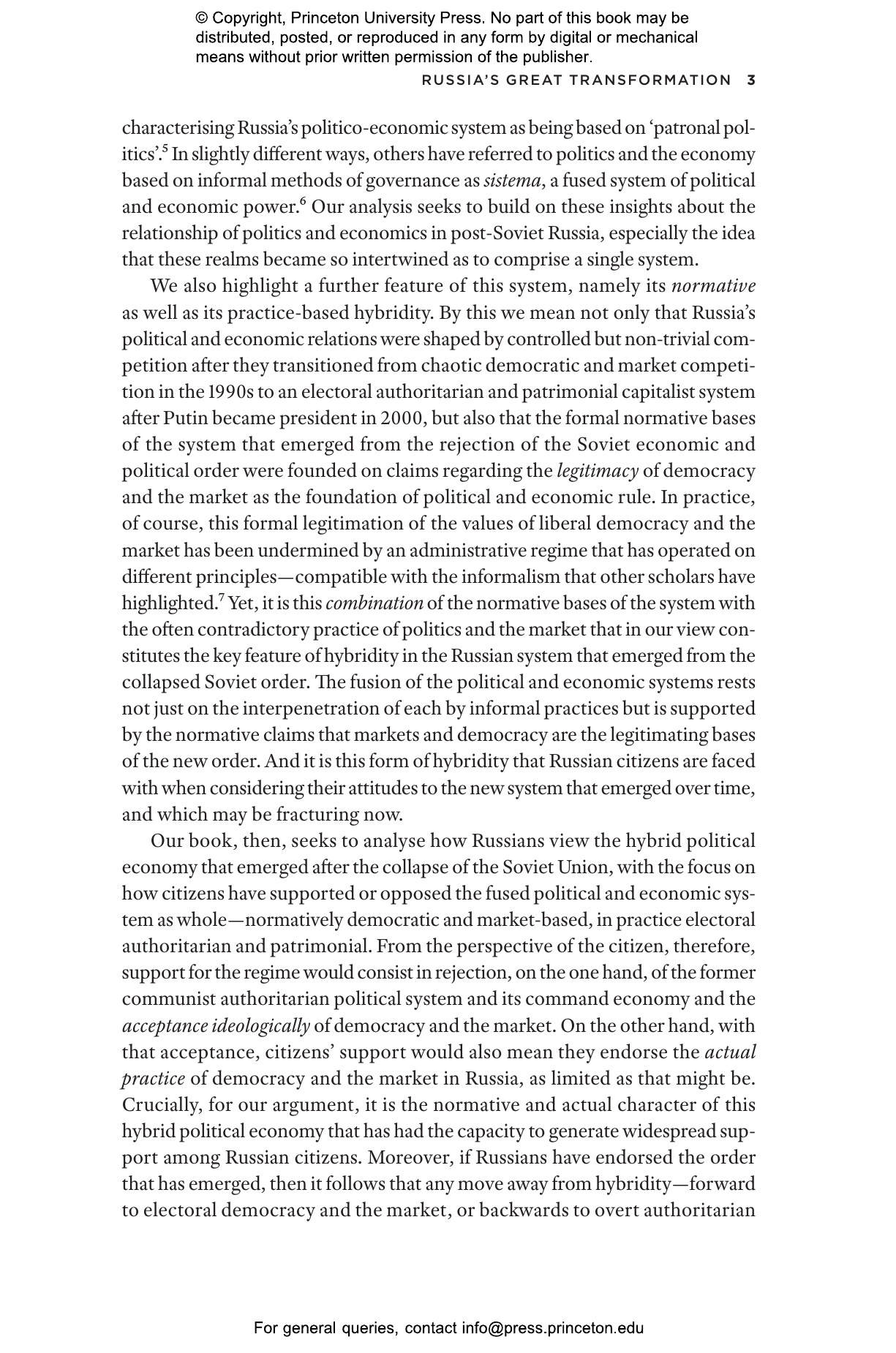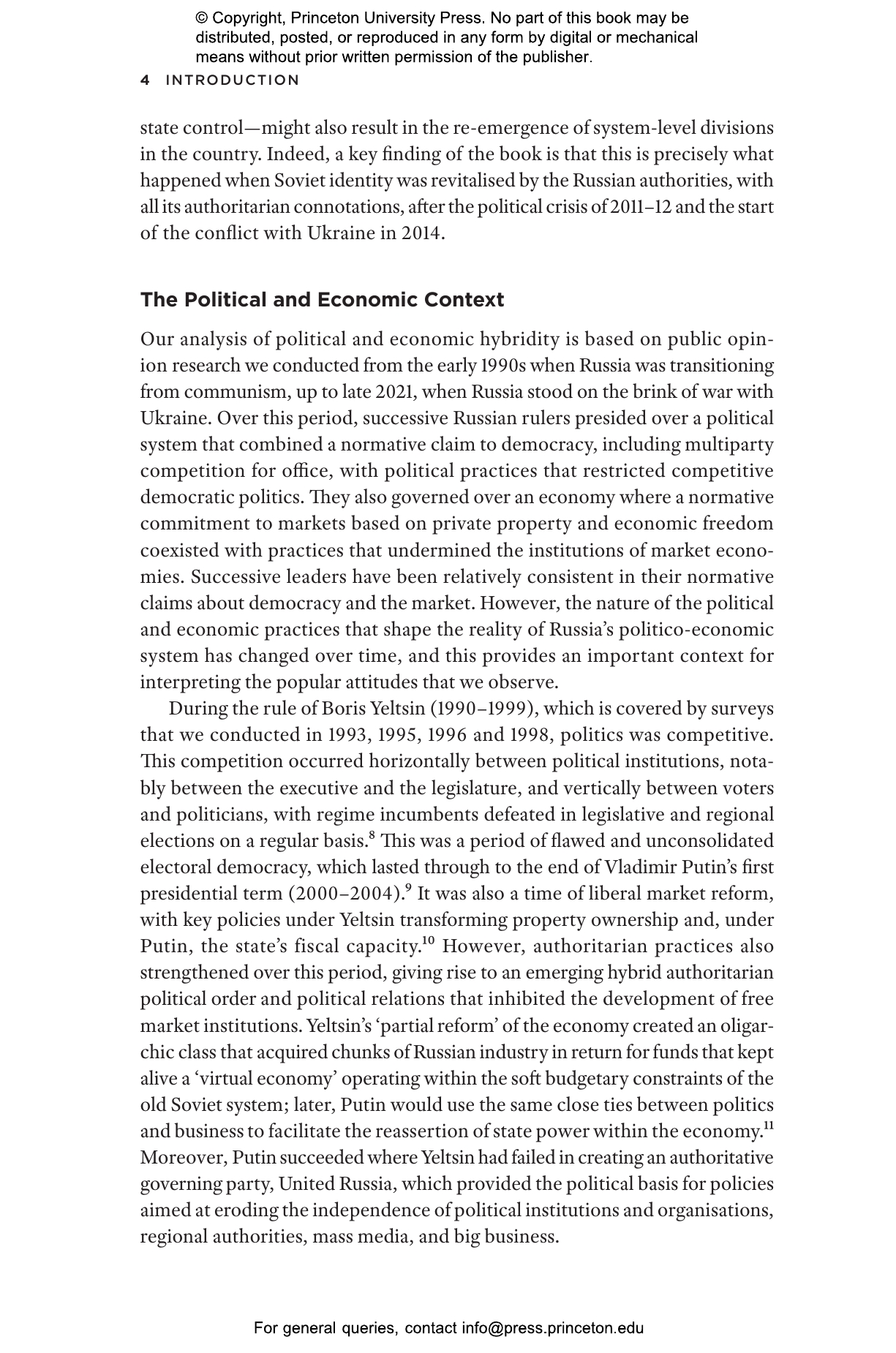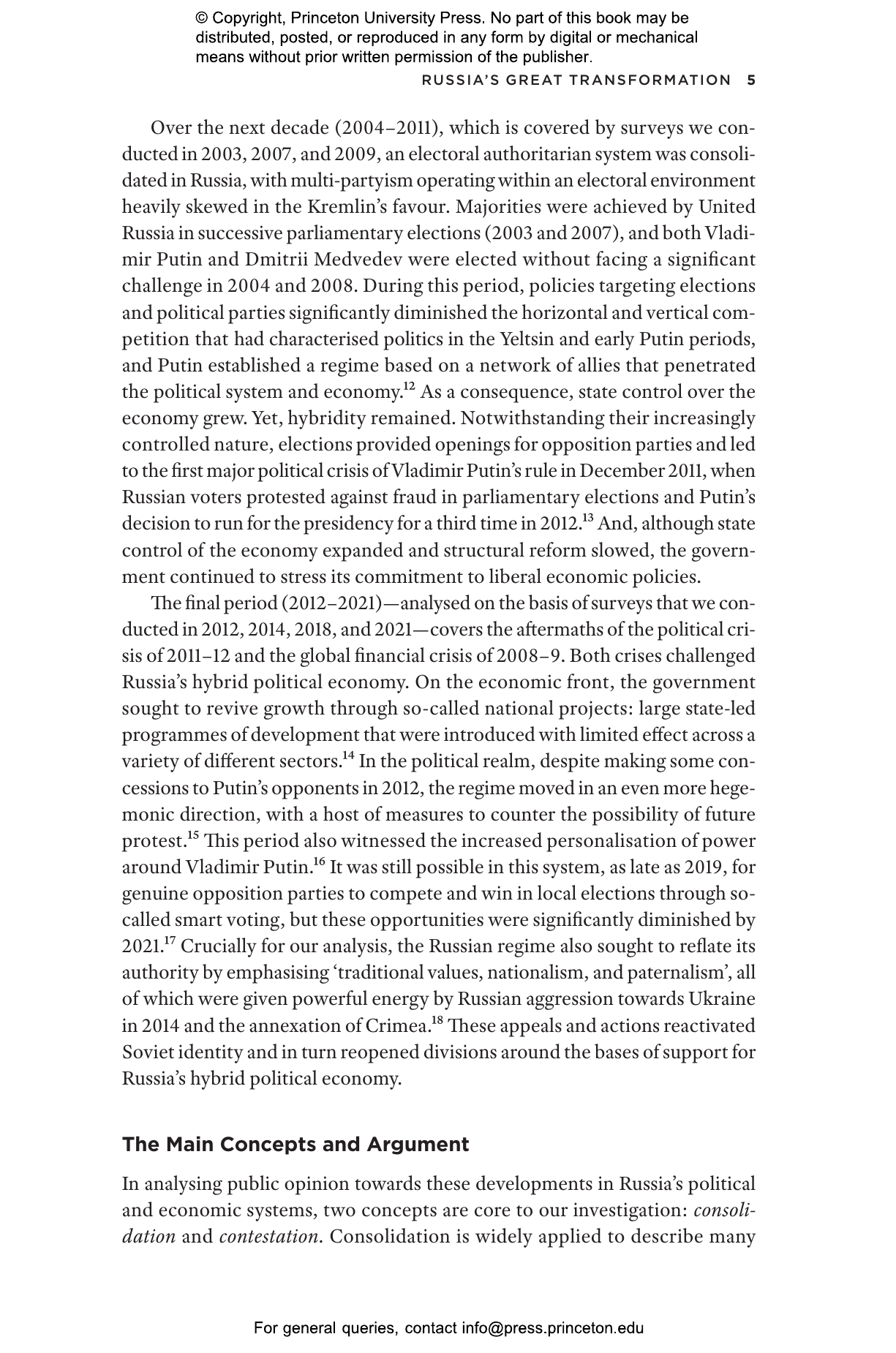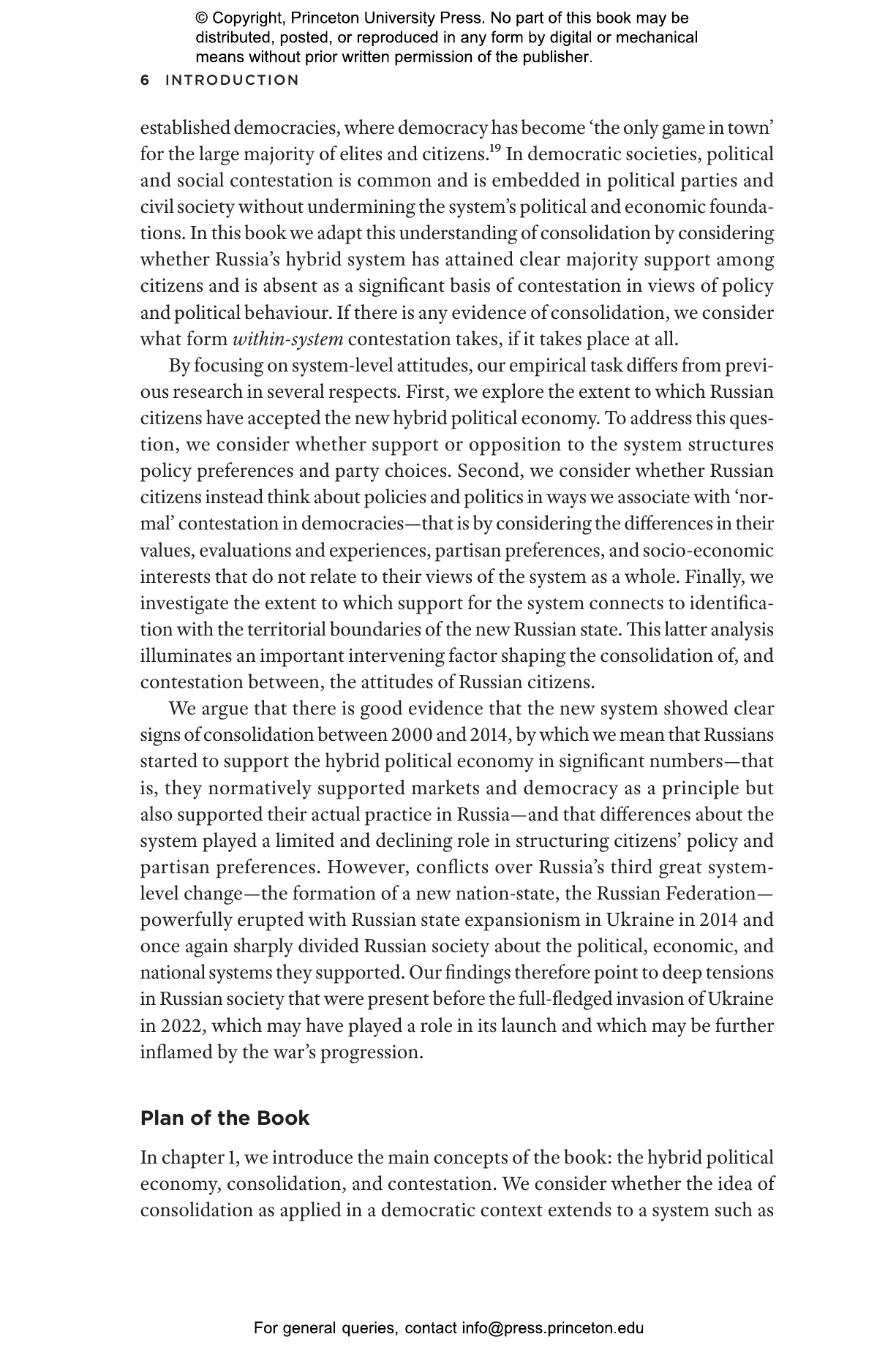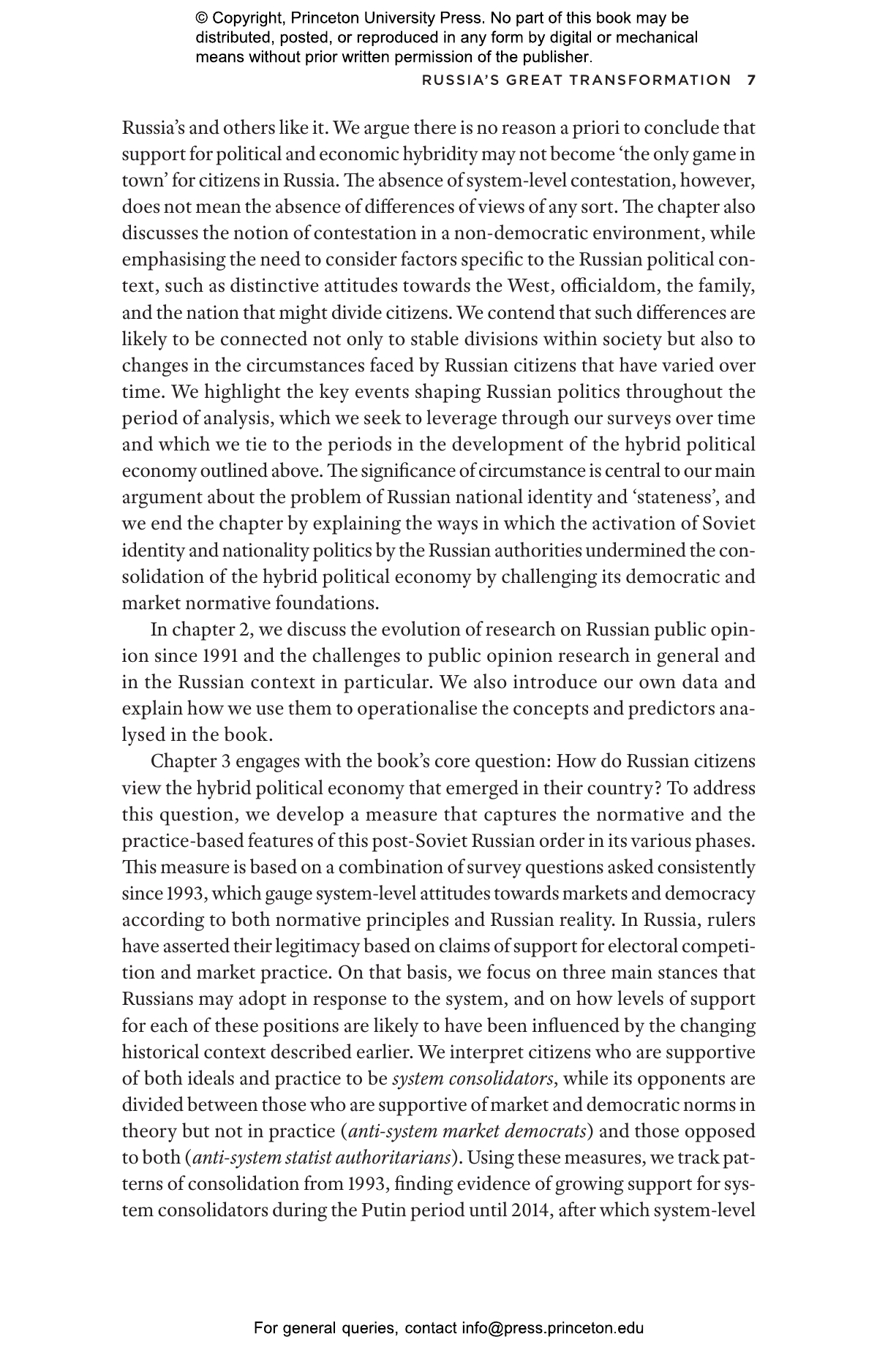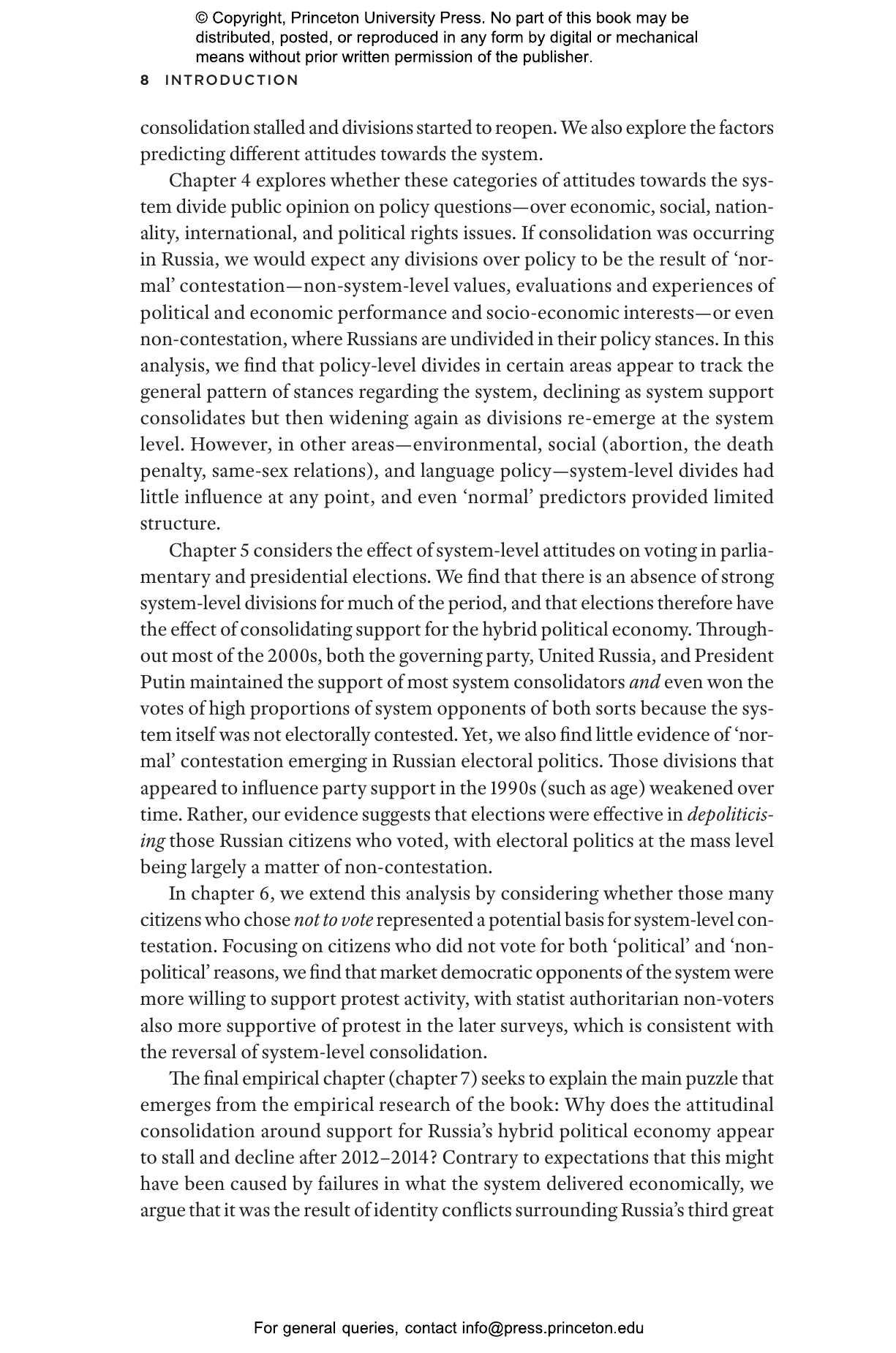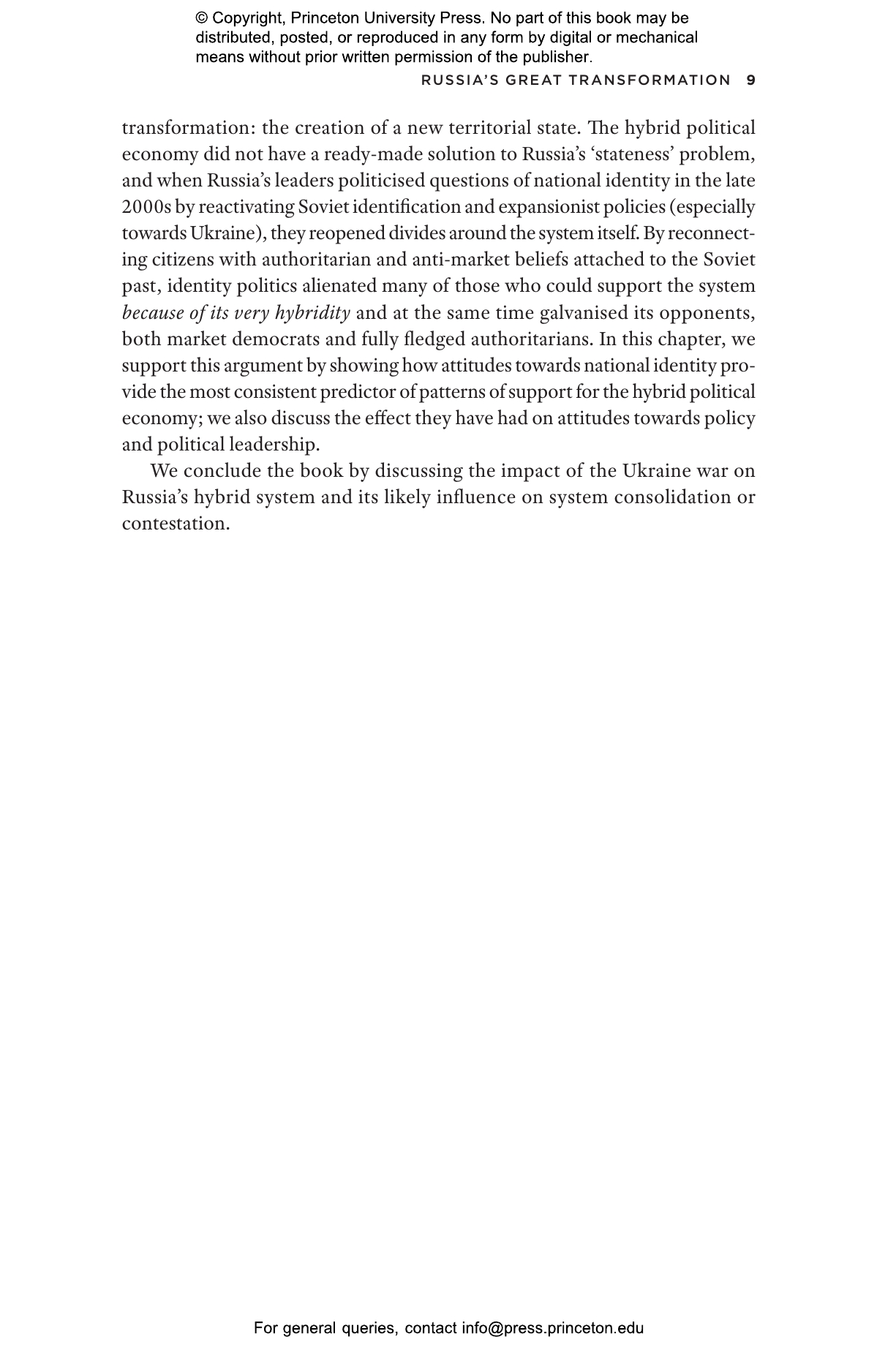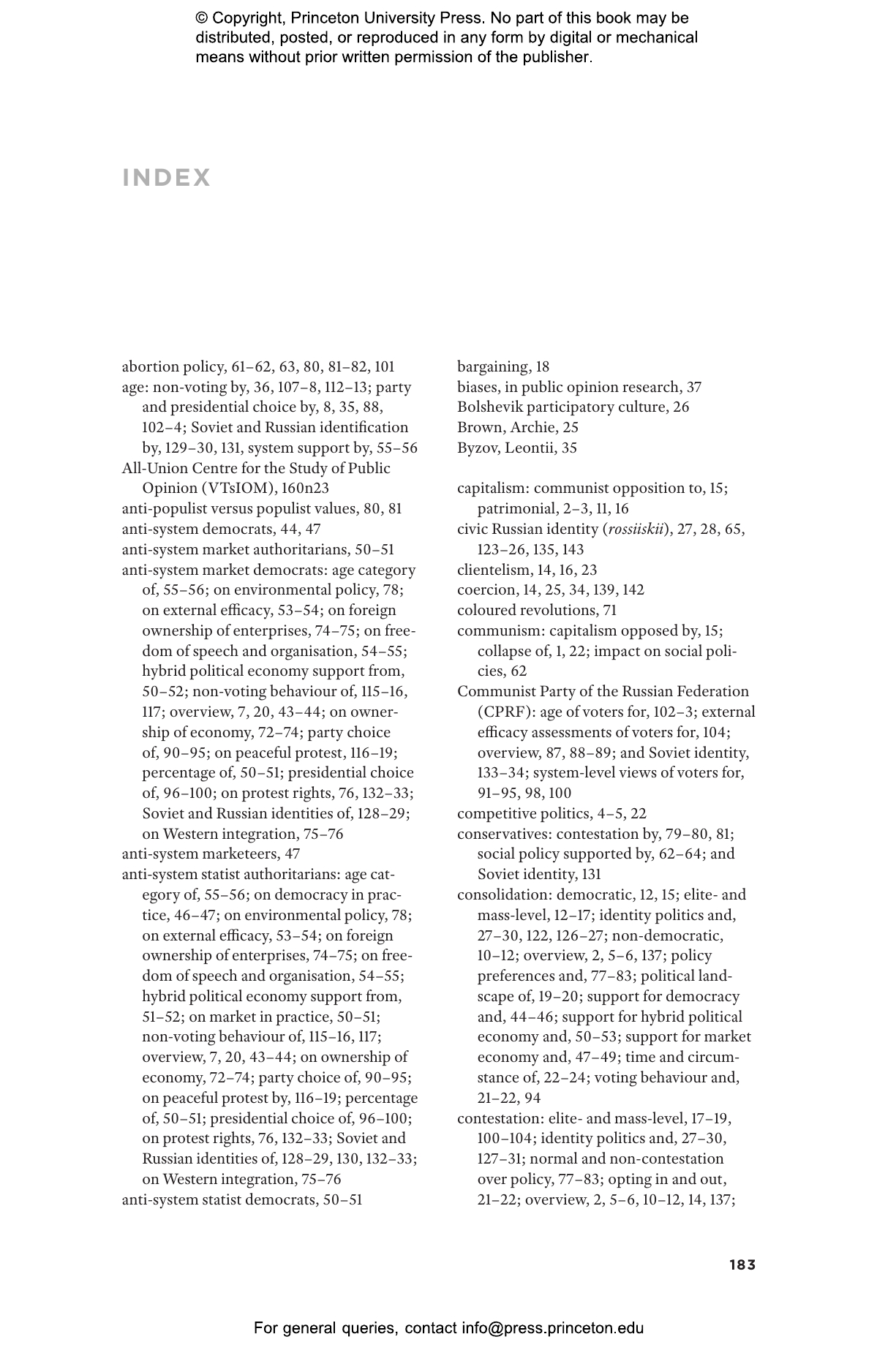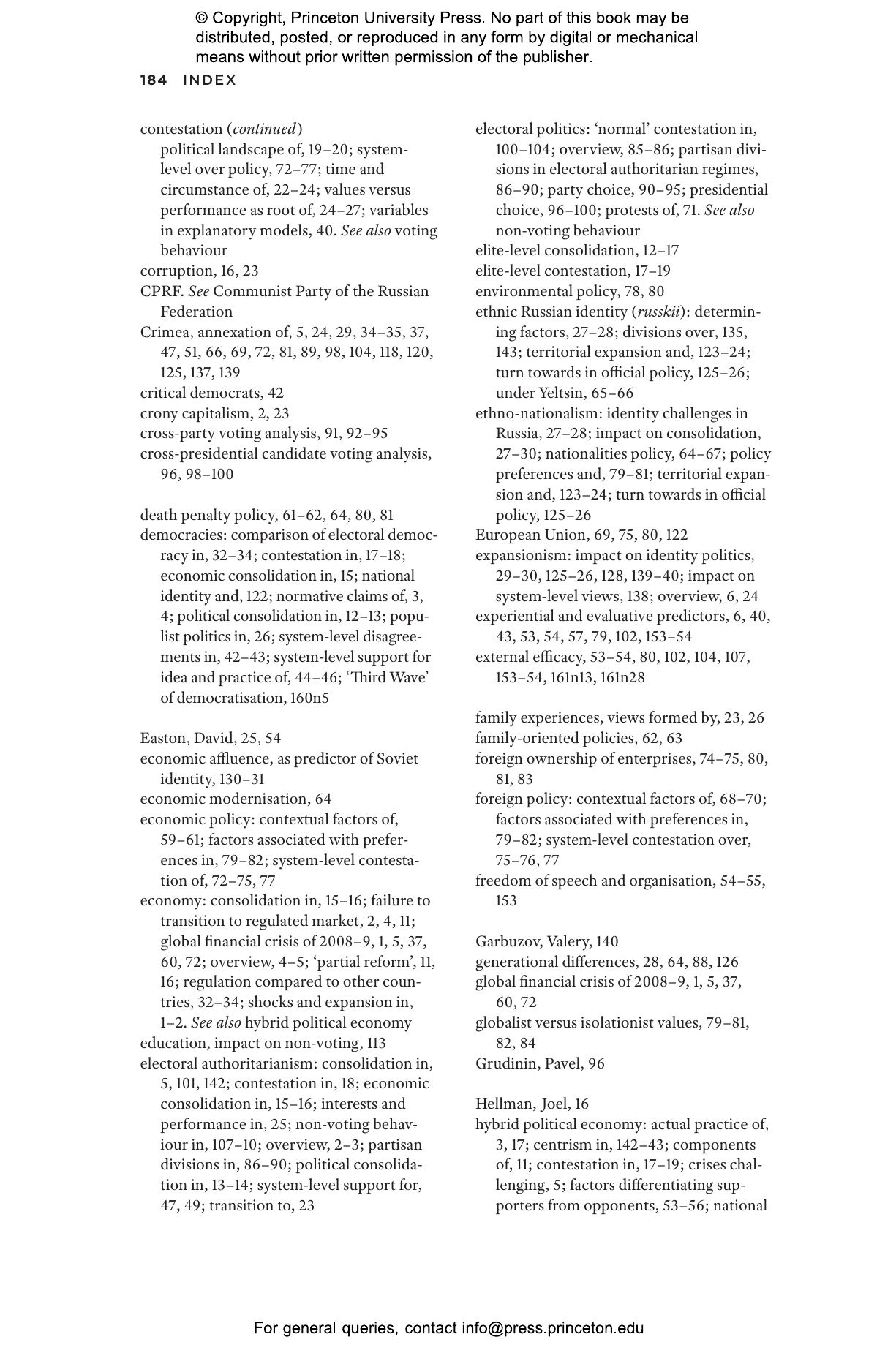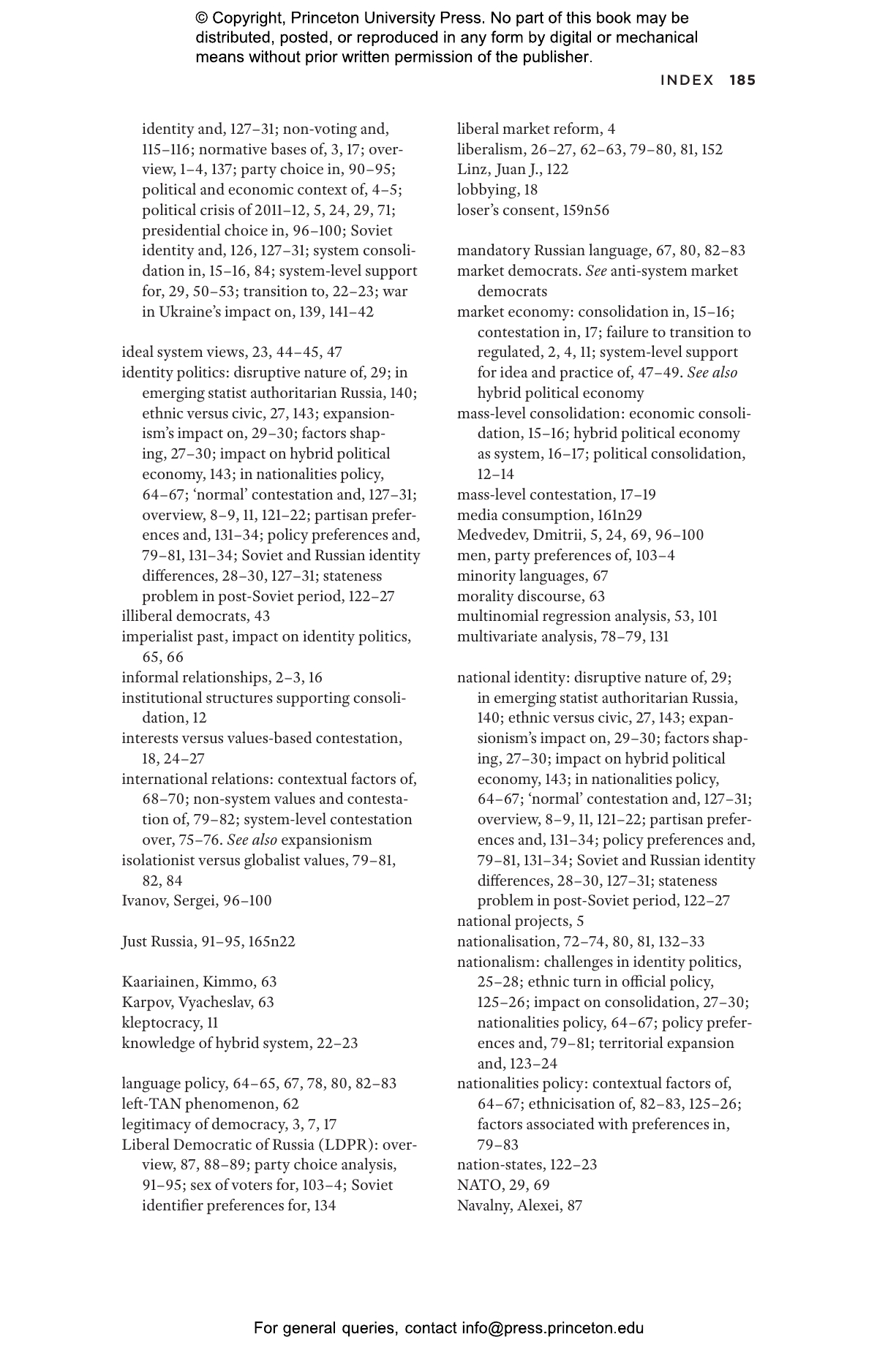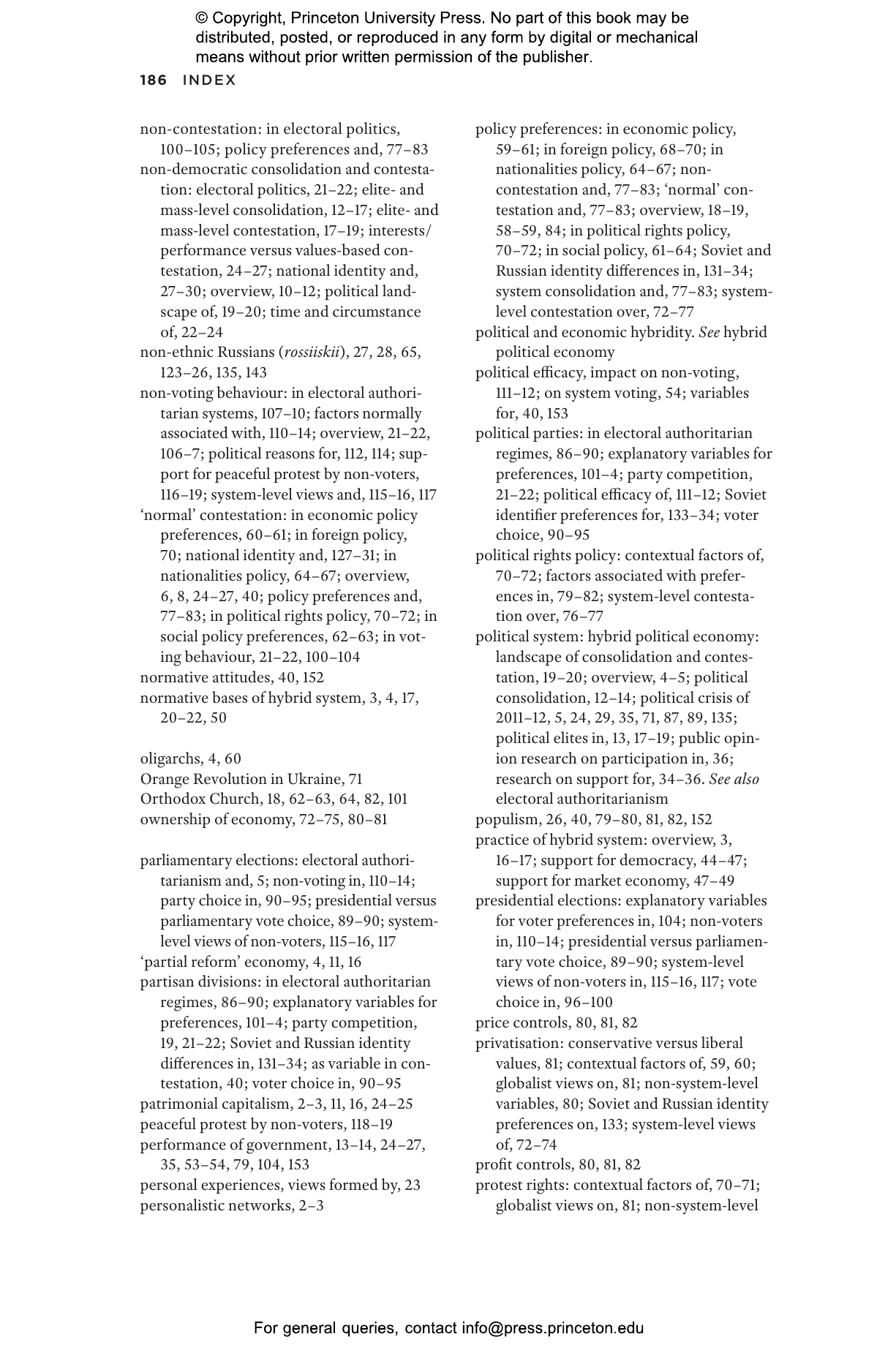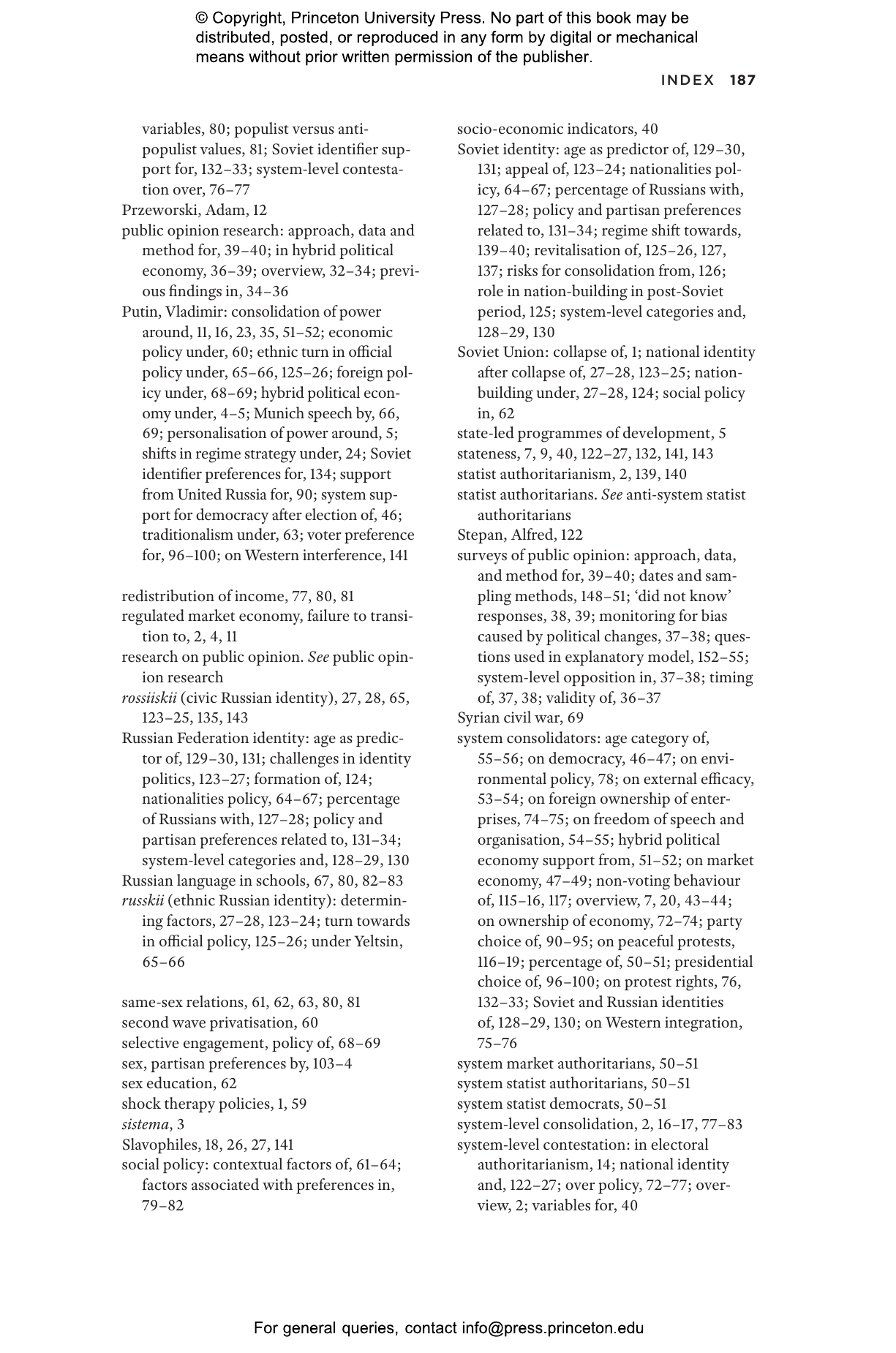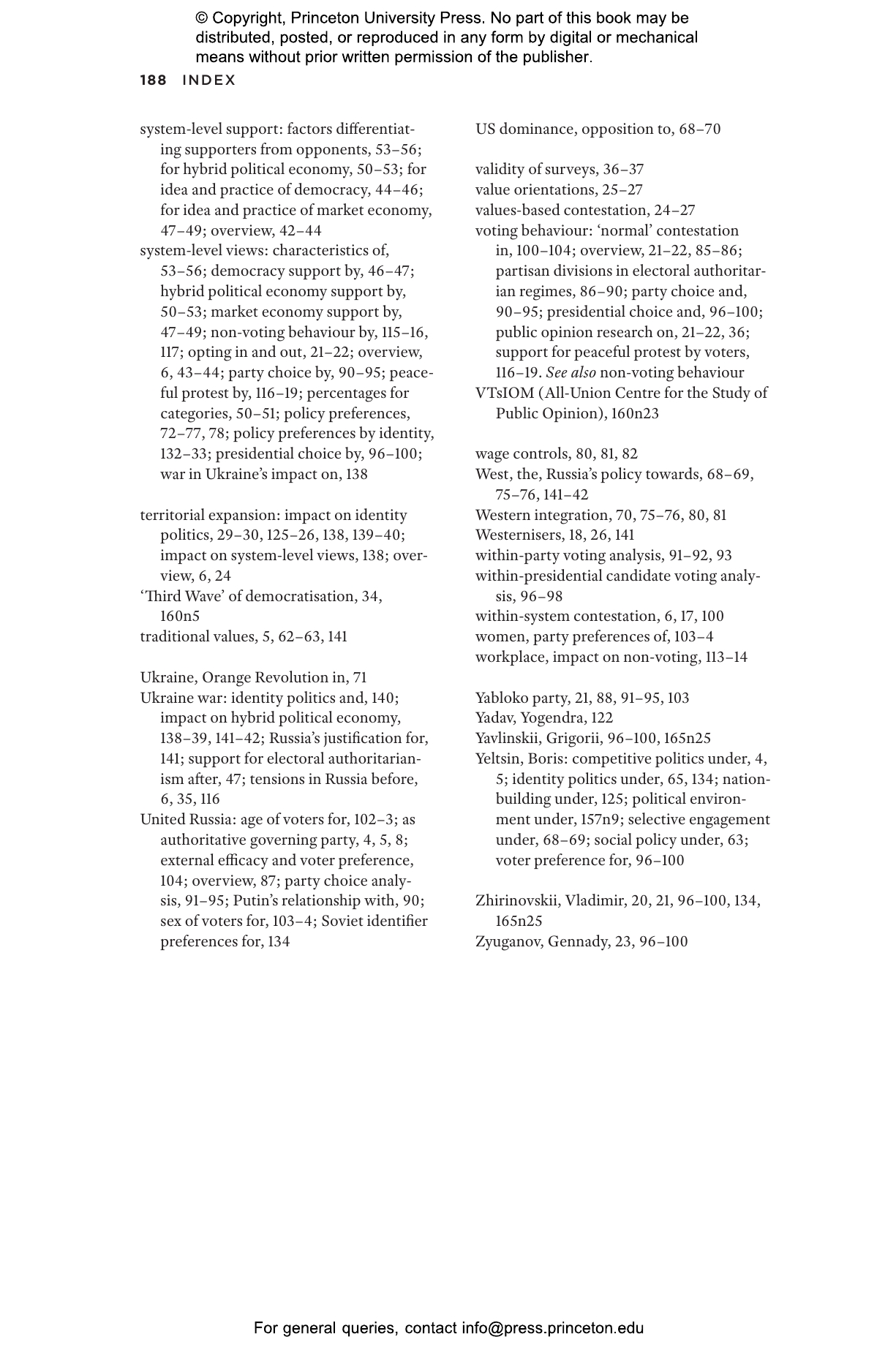The collapse of the Soviet Union in 1991 created a new Russia, with new territorial boundaries and new political and economic systems. The hybrid political economy that emerged incorporated commitments to markets and democracy that were undermined by the state’s economic interventions and authoritarian restrictions.
In this book, Paul Chaisty and Stephen Whitefield argue that the hybridity of the post-Soviet system provided a strong basis for the consolidation of Russian public opinion—and for the management of contestation so that it did not threaten the system itself. Drawing on almost thirty years of original public opinion research in Russia, Chaisty and Whitefield also find, however, that the territorial dimension of Russia’s postcommunist transformation has disrupted public support for the hybrid political economy. In particular, they trace the reopening of system-level disagreement between system supporters and system opponents to the nationalist turn in Russian politics that culminated in the 2014 annexation of Crimea and the reactivation of Soviet identities.
How Russians Understand the New Russia provides the first longitudinal study of Russian public opinion on the system of political and economic power that replaced communism. It offers unique insights into how Russian citizens have adapted their views of the new Russia, identifying the issues that are the most—and the least—divisive. Chaisty and Whitefield track Russian public opinion on a broad range of policy questions, discuss the political importance of both voting and not voting and consider problems of nation-building and national identity. Finally, they weigh the impact of the Ukraine war on Russia’s hybrid system, and whether consolidation or further contestation is more likely.
Paul Chaisty is professor of Russian and East European politics in the Department of Politics and International Relations, the Oxford School of Global and Area Studies and St Antony’s College, University of Oxford. He is the author of Legislative Politics and Economic Power in Russia and the coauthor of Coalitional Presidentialism in Comparative Perspective: Minority Presidents in Multiparty Systems. Stephen Whitefield is professor of comparative Russian and East European politics in the Department of Politics and International Relations and fellow in politics at Pembroke College, University of Oxford. He is the author of Industrial Power and the Soviet State and coauthor of The Strain of Representation: How Political Parties Represent Diverse Voters in Western and Eastern Europe.
“How Russians Understand the New Russia is a welcome antidote to prejudice and speculation. Based on nearly thirty years of survey research, from two of the world’s most respected scholars of public opinion, this book is invaluable reading for those who want to understand the evolution of Russian politics and society from the perspective of Russians themselves.”—Graeme B. Robertson, University of North Carolina at Chapel Hill
“Chaisty and Whitefield offer a deep insight into the evolution of Russian public opinion. After 2014, the latent tension over Russia’s national identity came to the fore following Putin’s turn toward an aggressive Russian nationalism. The book’s findings help explain the widespread public support for Putin’s war against Ukraine today.”—Thomas F. Remington, author of Presidential Decrees in Russia: A Comparative Perspective
“Chaisty and Whitefield provide a detailed and systematic account of the dynamics of Russian public opinion from the 1990s to the 2020s. Based on an in-depth analysis of mass survey data, their book uncovers the formation of the social bases of support for the current political and economic order in Russia.”—Vladimir Gel’man, Aleksanteri Institute, University of Helsinki
“Russian public opinion has developed alongside the Putin system. Many Russians have reconciled themselves to Putin’s rule, but Paul Chaisty and Stephen Whitefield’s innovative and original study shows how potential for political contention remains in Russia, most crucially over the regime’s claims about Russian national identity that underlay Putin’s war in Ukraine.”—Neil Robinson, University of Limerick


